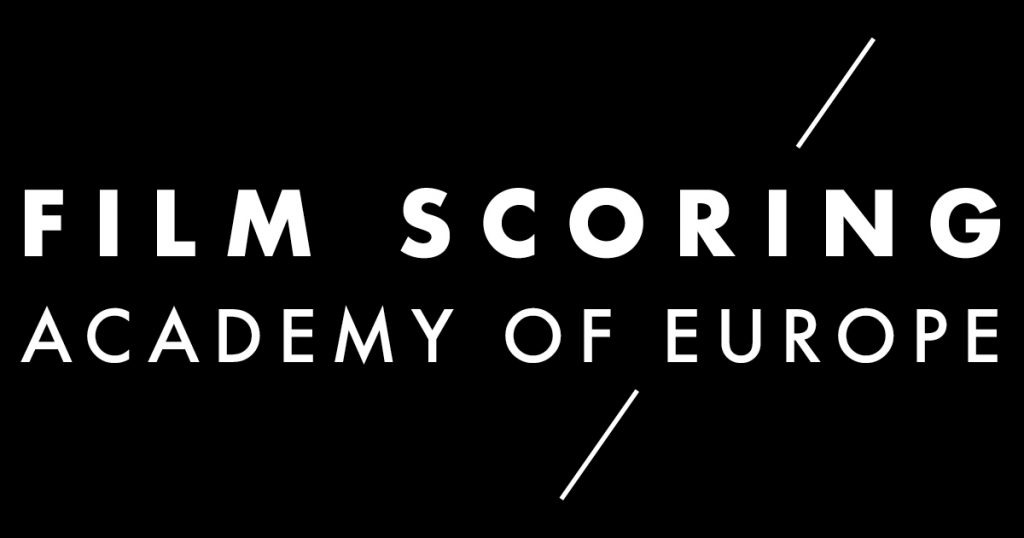Overview
The programme is designed by a tutorial staff of exemplary music educators, including Hollywood film composers, orchestrators, conductors, mock-up artists, sound designers, electronic music specialists and audio engineers. Its objective is to provide a comprehensive composer’s portfolio-building programme. Scoring sessions, synchronized to film, are staffed by professional orchestral session musicians, conducted by exceptional conductors, recorded and produced by a team of experienced scoring mixers, score supervisors, and mastering engineers. Because of the programme’s portfolio approach, each recording session serves the dual purpose of providing critical instruction as well as material for the composer’s professional reel. Principal instructional staff include Andy Hill, Derek Gleeson, Natasa Paulberg, Jeremy Leidhecker, Christo Pavlov, Debbie Smith and Jan Grenner. Invited guest lecturers include Conrad Pope, Christopher Young, Garry Schyman, Peter Schwartz, George Christopoulos, Richard Bellis, David Arnold, and more.
In the course of the programme, students develop to an expert level their skills and abilities in composing music for motion pictures, games, episodic television drama and all forms of contemporary visual media requiring musical underscore. Students orchestrate for orchestral ensembles ranging in size from small to large, incorporating elements of electronic or sample-based technology where required; apply and integrate substantive elements of current music technology applications to the production of soundtracks for Motion Picture and other Contemporary Media; conduct and score supervise orchestral recording sessions of the composer’s musical compositions for motion pictures and other contemporary media, in a professional recording studio environment; apply techniques of electronic music composition and create synthesized sounds; integrate and implement linear and non-linear compositional approaches in composing for games and interactive media utilising relevant audio engines; and undertake creative research in the development of a project idea that is presented and communicated in both oral and written form to an industry standard. Students apply critical analysis and evaluation of the theoretical and conceptual approaches utilized in the composition of a long form movie scoring or gaming narrative, accompanied by a written analysis (thesis) that demonstrates the synthesis and integration of knowledge, ideas and skills. Additionally, the programme helps students in learning to develop and apply the skills of self-promotion, career development and personal management to the business of scoring.
All courses are worth 3 credits except for MFM505 Music technology (6 credits) and MFM511 Major project (18 credits). All the courses run through the fall and spring regular semesters, with the exception of the major project, whose completion and submission takes place at a specified date in the summer.
- MFM500 Aesthetics and Analysis: A Vocabulary of Motion Picture Music
- MFM501 Advanced Score Analysis & Contemporary Compositional Practice
- MFM502 Techniques of Scoring for the Screen I: Supporting Long-Form Narrative/Theme
- MFM503 Techniques of Scoring for the Screen II: Crafting A Personal Style
- MFM504 Orchestration and Arrangement
- MFM505 Music Technology
- MFM506 Studio Conducting and Score Supervision
- MFM507 Sound Design and Electronic Music Composition
- MFM508 Scoring for Games
- MFM509 Recording, Mixing and Music Editing
- MBM510 Major Project and Career Development
- MFM511 Major Project
Candidates will usually have a degree in music, visual media or a related field of study, or have a performer’s diploma/certificate from an accredited institution; however, candidates without a primary degree yet who can demonstrate relevant creative abilities and potential, professional knowledge and/or experience within the field are encouraged to apply.
Entry to the programme is decided through a two-level application process on the basis of the following submissions:
- A letter of interest
- A CV or biographical outline
- Academic or performance degrees or demonstrated ability of equivalent professional activity and standards
- Proof of oral and written English proficiency equivalent to IELTS minimum level 7.0 or TOEFL minimum level 79
- Three audio / audio-video examples of original compositions
- Two to three printed or written score examples
- A Skype interview
A graduate of the programme will have demonstrated a superior ability to create, manage and deliver substantial musical scores for motion pictures and contemporary media at a professional, industry-level of execution. A graduate will also have demonstrated high levels of competency in managing, orchestrating for and conducting a range of musical groups for recording scores, from small ensembles to full-scale orchestras and supporting choirs. The programme is industry-focused, embracing current practices and methodologies to equip participants with a high-proficiency skill set with which to compete in a global market.

